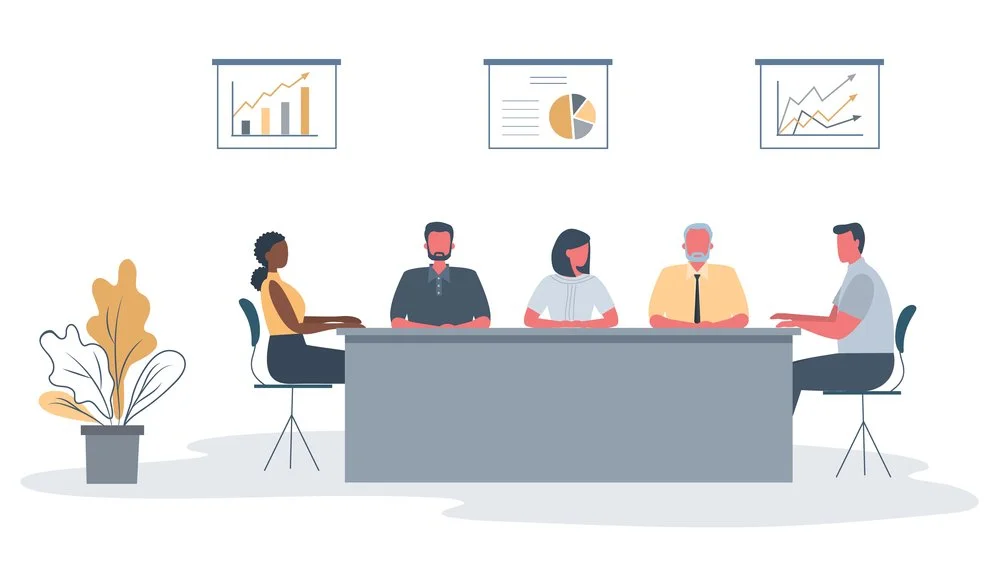Should you have a board of advisors?
Part of being successful in business is knowing when to ask for help. There are plenty of places to get insight and advice if you know where to look. My podcast, Creative Friction, and my newsletter are a great starting point. However, since they're free, they may not always cater to your unique situation. Sometimes, you may have specific needs that would benefit from hiring someone like me, who can offer personalized assistance in overcoming your challenges. Other times, your specific circumstances may require a different solution altogether. In these instances, I recommend that agencies consider developing a board of advisors to help them reach the next milestone in their journey.
What is a Board of Advisors?
As the name suggests, a board of advisors is a group of experts who contribute their knowledge, skills, and specialized expertise to provide guidance and advice to your agency.
Their Role and Benefits
Your advisory board will ask the tough questions that others may shy away from, identify your weak spots, and propose new ideas for future growth.
They will probe into critical aspects of your agency's operations, such as positioning, lead generation staff development, or whatever else may be causing you anxiety.
You will benefit from their intellectual and social capital i.e. they will expand your knowledge base, broaden your perspective, and help you establish valuable connections.
Unlike a Board of Directors, a board of advisors does not have formal decision-making or legal authority in your business.
Structuring a Board of Advisors
Your ideal board of advisors will reflect where you want your business to go in the future. Here's a brief guide to get you started:
Purpose: Clearly define your goals and expectations. Outline the specific objectives that the advisory board will help you accomplish. On an annual basis, assess and measure your progress towards these goals.
Team fit: Choose members who align with your goals and values, focusing on fit rather than name recognition.
Diversity: A diverse board of advisors brings together a variety of perspectives, experiences, and skill sets to enrich your decision-making.
Charter: Create a one-page document highlighting how each member's expertise will contribute to your agency's objectives. This will also serve as a useful resource for your board members, as it demonstrates how their skills complement the rest of the group.
Size: Keep the group small, say 3-5 people, to maintain productive discussions. Keep in mind that this group will meet with your entire leadership team, so consider the size of your team when determining the appropriate advisory board size.
Meeting Frequency: Aim to hold meetings about three times a year, spaced out every four months. Meetings that occur too frequently may become too tactical, while infrequent gatherings may lead to a sense of detachment from your agency.
Meeting logistics: There is no one size fits all here. This will depend on group dynamics and how you as an agency leader prefer to run meetings. However, here's a simple schedule to follow -- start at lunchtime and wrap up by five o'clock, with the option of enjoying dinner afterwards.
Compensation: Offer a meeting honorarium of about $500 - $1,000, plus travel expenses for out-of-town members. Another thoughtful option is giving them the choice to donate the funds to a charity they care about. I've also seen this work without an honorarium so it's completely up to you.
Should You Have a Board of Advisors?
In most instances, I will say yes because few people are in a position where they couldn't benefit from the peer support a board of advisors can provide. This type of support might not be readily available from your internal team.
An advisory board does more than just relieve any feelings of loneliness you may have as the owner of your shop. Its benefits include objectivity (decisions aren’t clouded by emotional attachments or past experiences), risk minimization (guidance based on experience to help you steer clear of potential pitfalls), and access to strategic alliances (the ability to connect with potential clients or strategic partners).
The effectiveness of a board ultimately depends on whether or not their advice is heeded. Some agencies might prioritize guidance on long-term strategic issues, while others may seek counsel on day-to-day operational matters.
In summary, a board of advisors can be an invaluable asset for your marketing agency, guiding you in ways you may not have considered. From offering an objective perspective to their ability to help reduce risks, the advice and connections provided by a board of advisors may just be the missing piece to your agency's success. This is why I recommend agencies consider forming a board of advisors — you can leverage the wisdom of those who have already been there and can help chart your path forward.

